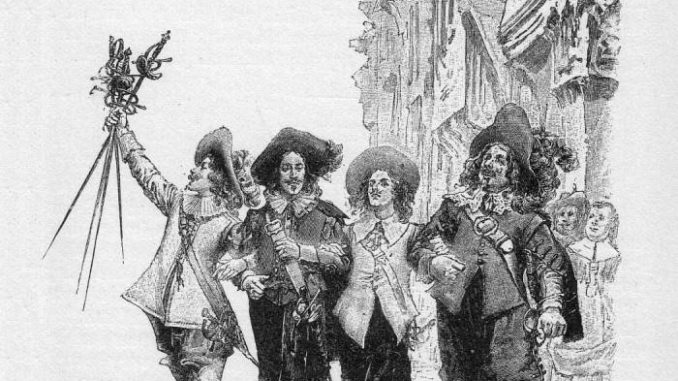
Welcome everyone, to the Finder’s Archives.
Today I’m going to look at something slightly different. It’s a thought that’s been rummaging through my head for a while, though I’m not sure why.
Basically the thought is this: Can it still be Dungeons and Dragons (or Pathfinder) without magic? We all know that the basic tenets of table-top roleplaying is set firmly in fantasy. But can you take that part out of it, and still have it retain its flavor?
Well, my thought is yes – though you have to make so adjustments.
1) No magic = No healing spells.
In a campaign of this type, you’re likely to have your characters out for several days or even weeks after a gruesome battle, and that’s OK, as long as everyone is aware of it. We’re all used to our characters being more or less all right after a quick trip to the cleric – but in a campaign such as this, it becomes far more difficult to survive. That also means that the players will have to be smart about their choices.
2) No monsters(?)
A campaign such as this will likely be low on monsters. There will be no fire-breathing dragon or flying horses, no giants and the like. But there might still be some room for certain types of monsters. Look at literature for your ideas. Characters such as Mr. Hyde, Dracula, Frankenstein’s monster – all of these still fit neatly into a “no-magic” campaign, in spite of being semi-magical in nature. Just remember that the characters in such a campaign likely won’t have much access to magical weaponry either, though they could obtain such through religious artifacts from the church or mechanical creations that mimic those effects. (The Van Helsing film from 2004 is a good example of this).
3) More Guns or Less?
A world with no magic is likely to be either more advanced than one that has magic in it, or less so. So where typical fantasy games are set in a medieval-style world, it might be worth thinking about moving the time period around there. If you want to include more technology, you should move your game up to around the Enlightenment/Renaissance. Let the characters be swashbucklers, pirates and the like. Let them fire muskets and cannons, and have epic duels in beautiful palaces.
If, on the other hand, you want to set it further back in time, perhaps they’re Viking-style raiders, heading out to bring home food and plunder for their villages. Perhaps they’re more like the ancient Greeks or Romans, fighting wars against invaders or conquering the barbarians for the glory of the empire. Maybe they’re even down on their luck and spend their entire adventuring career in the gladiator pits, desperately hoping that the crowds won’t turn against them.
Regardless of whether you include any of these, there are many places to get inspiration from in literature, and here are a few that spring to mind:
Dracula
The Three Musketeers
The Count of Monte Christo
War and Peace
Les Miserable
The Hornblower Series (or the Ramage series by Dudley Pope, less known, but just as good)
Sherlock Holmes (for an investigator series)
Dr. Jekyll and Mr. Hyde
Frankenstein
The Hammer and the Cross (by Robert Ferguson)
– The TV-series Vikings
And with that, I hope you’ve all had your imagination fired up a bit. 🙂
If you have any favorites you think should be on the list, please feel free to add them down below.
Kim Frandsen
Latest posts by Kim Frandsen (see all)
- Finder’s Archive – Crypt of the Eternals - June 2, 2023
